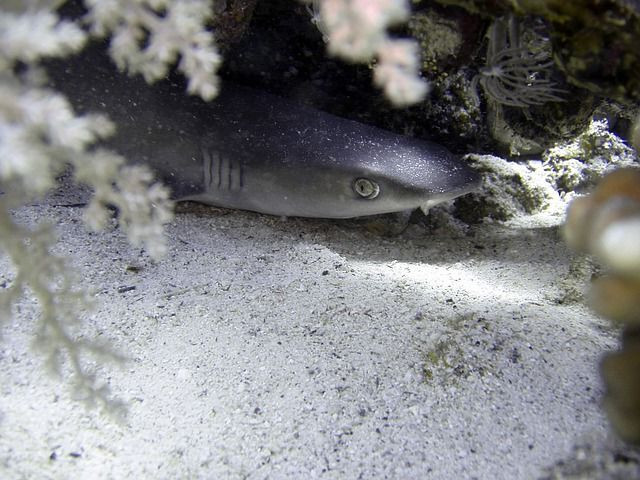Woman Loses Arms, Breast In Attack From 'Most Dangerous' Shark

A French woman suffered a horrific attack from a shark off the Tahitian coast in French Polynesia, losing both her arms and breast, but was lucky to survive.
The 35-year-old woman was swimming in the ocean close to Moorea island during a whale-watching excursion when a white-tip shark attacked her and began biting her chest and arms.
The shark ripped off both of her arms at the forearms and her left breast during the brutal attack. Luckily, she was airlifted to the hospital is Tahiti and is reported to be in critical condition from the loss of blood.
Local officials said the woman was very lucky indeed to have survived the attack, partly because there were two nurses nearby who delivered quick first aid. It is said the shark attack happened in front of her family, including her young son. She was brought ashore close to the Intercontinental hotel by Pontoon and attended by paramedics.
One of the witnesses told media outlets they saw a woman whose left arm was hanging while her ribs on the right side were also swollen. The woman was conscious when she was brought to the shore, even asking why they took her there if it was not safe.
One of the responders on the scene, firefighter Jean Jacques, said the woman was conscious but in critical condition. He mentioned she had lost a lot of blood, and both arms were severed at the forearm. Some of her chest was also gone.
There are differing opinions on the white-tip shark in scientific circles. Locally known as Parata, the prevailing assumption is they do not usually attack people. They also tend to swim offshore in the deeper waters. A judicial inquiry has already been set up to determine the circumstances of what happened.
But famous conservationist Jacques Cousteau has a different opinion about the white tip sharks. He maintains the white tips are the "most dangerous of all sharks." This is because of their hunting skills and their recorded history of picking off the survivors of shipwrecks.
It was white-tip sharks that were thought to be responsible for the deaths of an estimated 800 sailors following the sinking of the USS Indianapolis during the Second World War in 1945.
Recent studies are also showing a declining number of white-tips because of increased fishing. Its fins are highly sought after. The attacks in Polynesian waters are sporadic, though. In fact, there have only been six recorded unprovoked attacks since the 16th century.
© Copyright IBTimes 2024. All rights reserved.





















